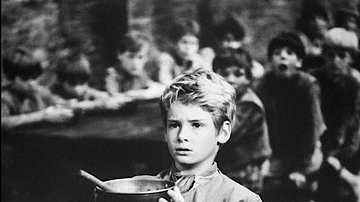Throughout history, societies have experienced periods of profound change that have reshaped their economic and social structures. One such transformative era was the British Industrial Revolution, which brought about significant shifts in various aspects of society. This article explores the far-reaching consequences of this revolution on British society, examining its impact on the economy, labor conditions, and social dynamics.
An Economic Metamorphosis: From Agrarian to Industrial
The advent of mechanization and technological advancements marked a turning point in Britain’s economic landscape during the Industrial Revolution. Traditional agrarian practices gave way to large-scale industrial production as factories emerged across the nation. The introduction of steam power revolutionized manufacturing processes and led to increased productivity levels previously unimaginable.
This shift towards industrialization not only transformed Britain into an economic powerhouse but also altered societal norms by creating new opportunities for wealth accumulation. As industries flourished, a burgeoning middle class emerged alongside wealthy factory owners who amassed great fortunes. However, this newfound prosperity came at a cost for many workers who faced grueling working conditions and meager wages.
A Labor Force Transformed: Exploitation amidst Progress
While industrialization brought unprecedented growth and innovation to Britain’s economy, it also resulted in harsh working conditions for countless individuals employed within these emerging industries. Factory workers often endured long hours under hazardous circumstances with minimal legal protections or rights.
Child labor became distressingly prevalent during this period as families sought additional income sources to sustain themselves amidst rising poverty rates. Young children were frequently subjected to arduous tasks that stunted their physical development while denying them access to education or leisure time.
In response to these exploitative practices, reform movements gradually gained momentum throughout the 19th century seeking improved working conditions and fair treatment for workers. These efforts eventually led to the establishment of labor unions and the enactment of legislation aimed at safeguarding workers’ rights.
Social Dynamics Altered: Urbanization and Class Divide
The Industrial Revolution also brought about a significant shift in population distribution as rural communities migrated en masse to urban centers in search of employment opportunities. This rapid urbanization resulted in overcrowded cities with inadequate infrastructure, leading to unsanitary living conditions and increased social tensions.
As society became increasingly divided along class lines, stark disparities emerged between the wealthy elite and the working class majority. The concentration of wealth among industrialists further widened this gap, exacerbating social inequality and fueling discontent among those who felt marginalized by these developments.
Nonetheless, alongside these challenges arose a burgeoning awareness of societal injustices that laid the foundation for future movements advocating for equality and social reform. Intellectuals such as Karl Marx began critiquing capitalism’s inherent flaws, paving the way for ideologies that sought to address systemic inequalities.
A Legacy Defined: Lessons from an Era of Transformation
The British Industrial Revolution left an indelible mark on history, forever altering not only Britain but also serving as a catalyst for global change. Its impact on economic systems, labor practices, and social dynamics reverberated far beyond its time period.
While it brought immense progress through technological advancements and economic growth, it also exposed deep-rooted issues within society that demanded attention. The struggles faced by workers during this era paved the way for subsequent labor movements worldwide while highlighting the importance of balancing progress with equitable treatment.
In reflecting upon this transformative period in history, we are reminded that societal change is often accompanied by both triumphs and tribulations. It is our responsibility to learn from past mistakes while striving towards creating inclusive societies where progress benefits all.
